Greek civilisation, and more specifically the city-state of Athens, was highly influential in the 5th century BC. Other city-states, and even neighbouring civilisations, envied its prosperity. Athens spread its culture to many parts of the Mediterranean and even around the Black Sea. The Greeks made a name for themselves over such a vast territory by founding colonies.
A colony is a territory inhabited and operated by a foreign state.

The Athenians attached great importance to culture. As a result, their society was highly developed culturally. Areas such as architecture, philosophy and religion were even taught to the future male citizens of Athens.
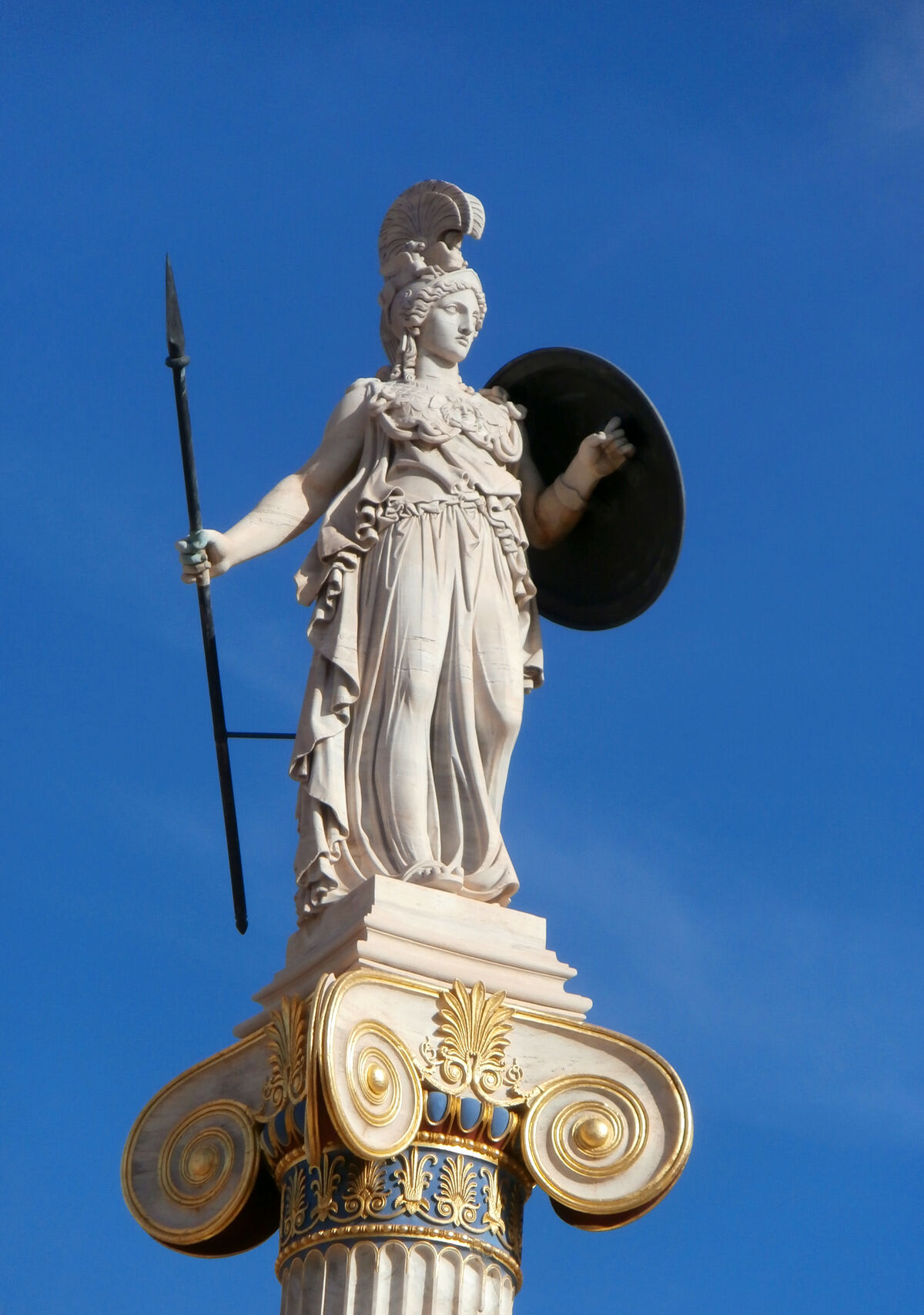
She is the protective goddess of Athens.
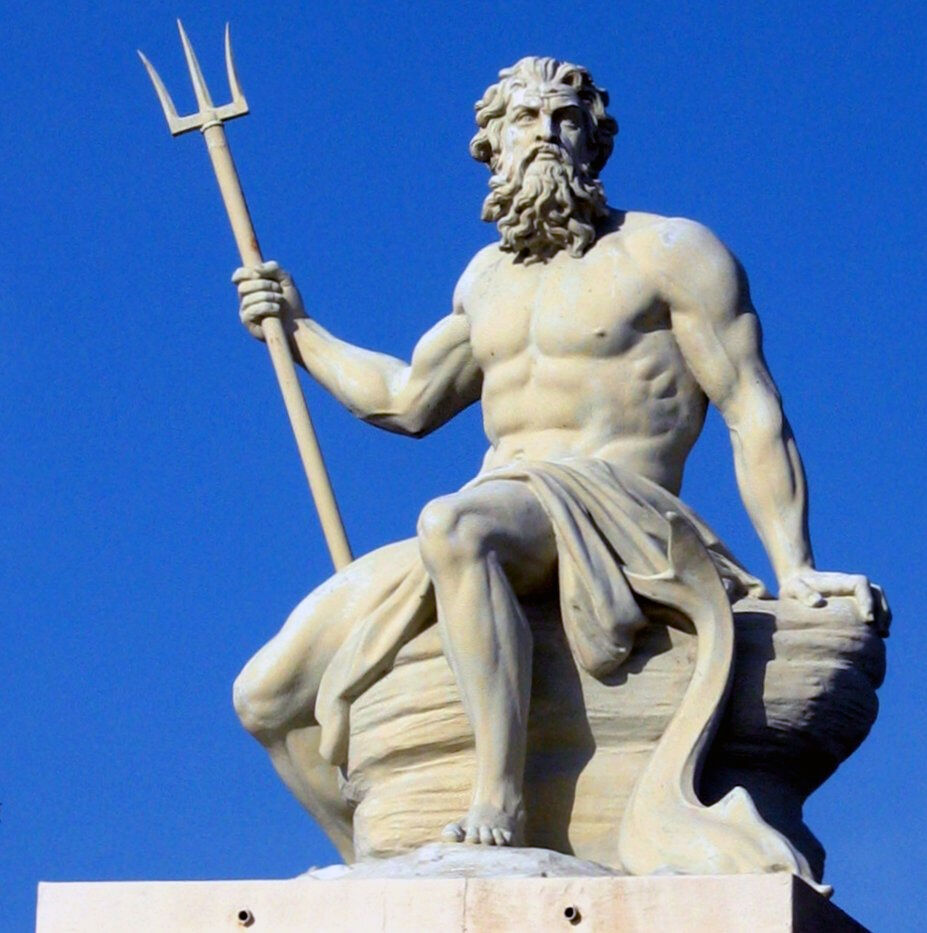
He is the god of the sea, navigation, storms and earthquakes.
Greek mythology was widespread throughout the Mediterranean during Antiquity. It is made up of a multitude of myths, stories recounting the exploits of various Greek gods and heroes. The Greeks used these stories to teach character traits and behaviour to be valued in society, such as courage, honour, perseverance and so on.
Myths were also used to explain things that were not understood.
According to Greek mythology, volcanoes belched out flames when Hephaestus, the god of fire and blacksmiths, activated his forge located beneath a volcano.
Philosophy is a human activity that aims to develop the way human beings think.
Philosophy is a Greek word meaning love of wisdom.
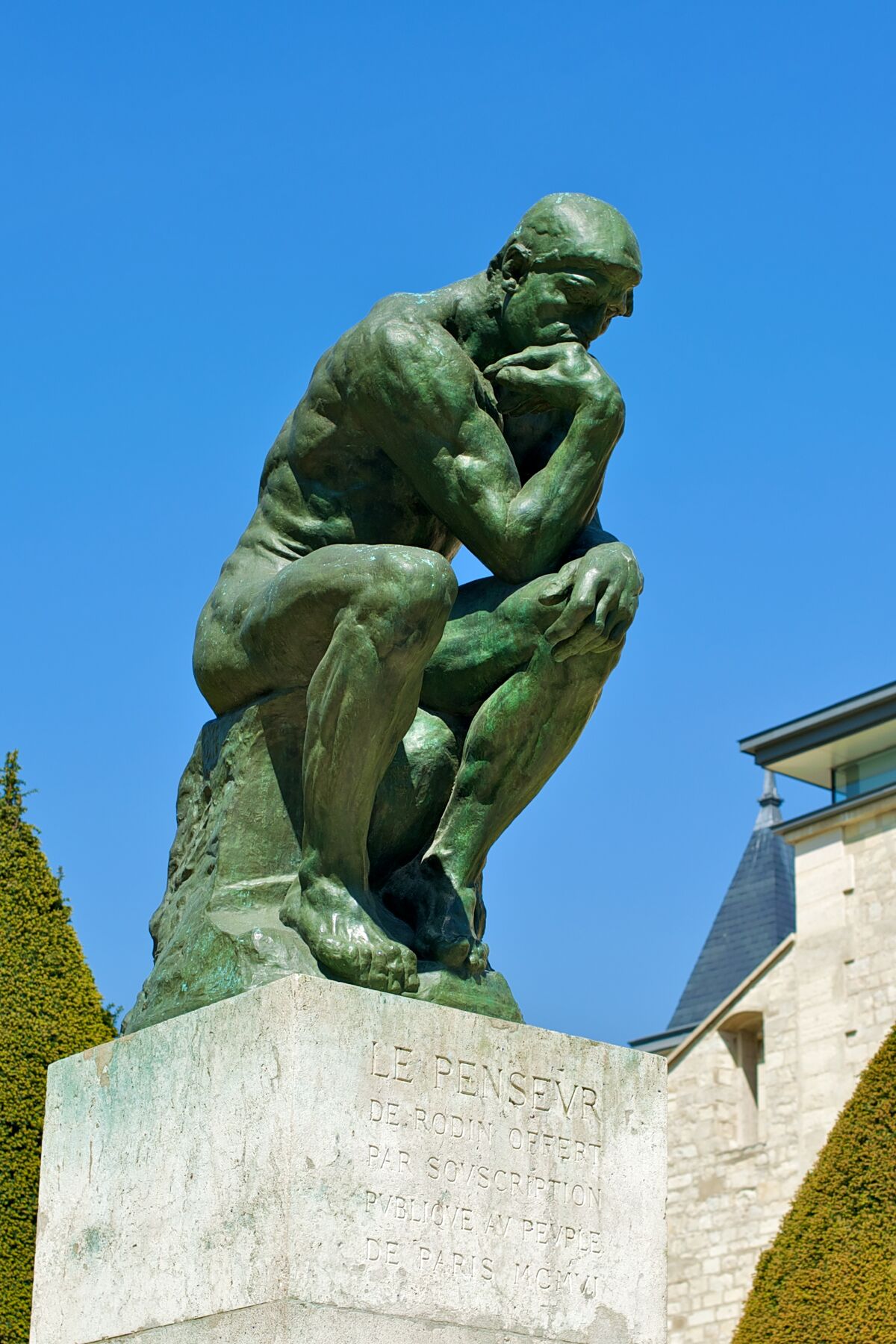
This sculpture by Auguste Rodin, created in 1880, depicts a man reflecting.
With the help of philosophy, the Athenians tried to answer some rather complex questions using a method of thought based on reason. Here are a few examples of such questions:
-
What is happiness?
-
What is right and wrong?
Mythology and religion have already answered these questions. Unlike mythology and religion, which are based on mythical texts and stories, philosophy is based on logic. This is why philosophers want proof, objective arguments that will enable them to find the right answer to the problem. Socrates (469 to 399 BC), Plato (427 to 348 BC) and Aristotle (384 to 322 BC) are three of the greatest Greek philosophers.
The method of reasoning developed by the Greek philosophers is the basis of the scientific problem-solving method used today. Scientists base their work on facts to answer the hypotheses they are faced with.
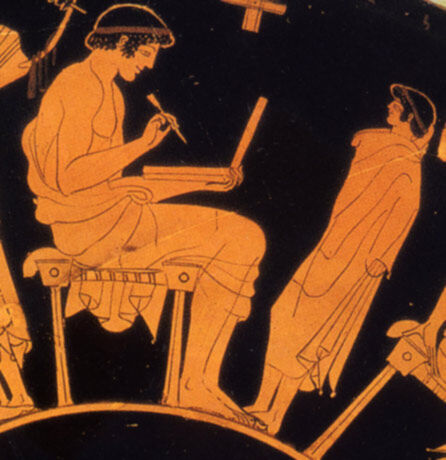
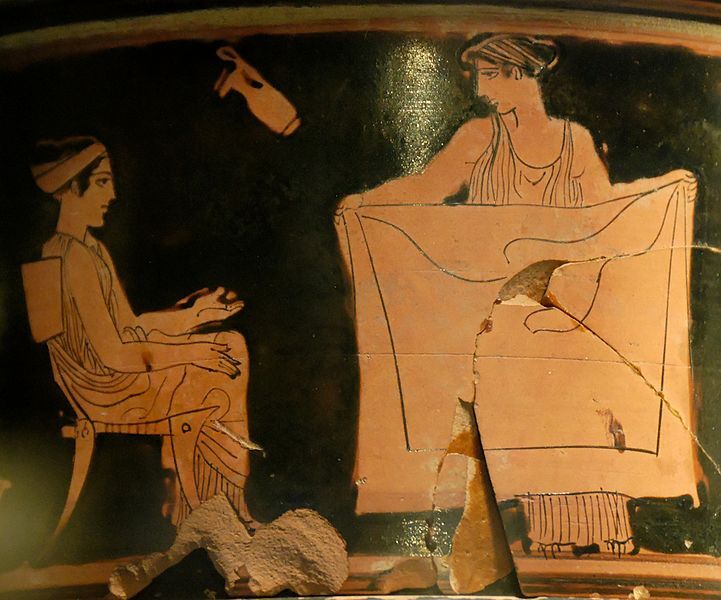
In Athenian society, education was very different depending on the sex of the student. Boys were expected to learn how to become good citizens, while girls were expected to learn how to become good wives and mothers.
The boys
Education differed from one city-state to another: in Athens, boys went to school from the age of 7 to 18 and then did two years of military service. These two years (from the age of 18 to 20) were essentially used to train the young man to become a good citizen.
From an early age, boys were educated by their mother, father and nanny, then by the household slave and finally by masters. Children are stimulated intellectually as well as physically from a very early age. In order to become a good citizen who could debate at meetings of the Ecclesia, they were taught language, philosophy and the art of rhetoric (the art of speaking in front of an audience).
Girls
Girls had a different upbringing: as they had no function in society, they were educated for their future roles as wives and mothers. In the city, it was the father who chose his daughter's husband. Women had to learn to be virtuous and loyal to their husbands. They were also responsible for running the house, which was the private space.